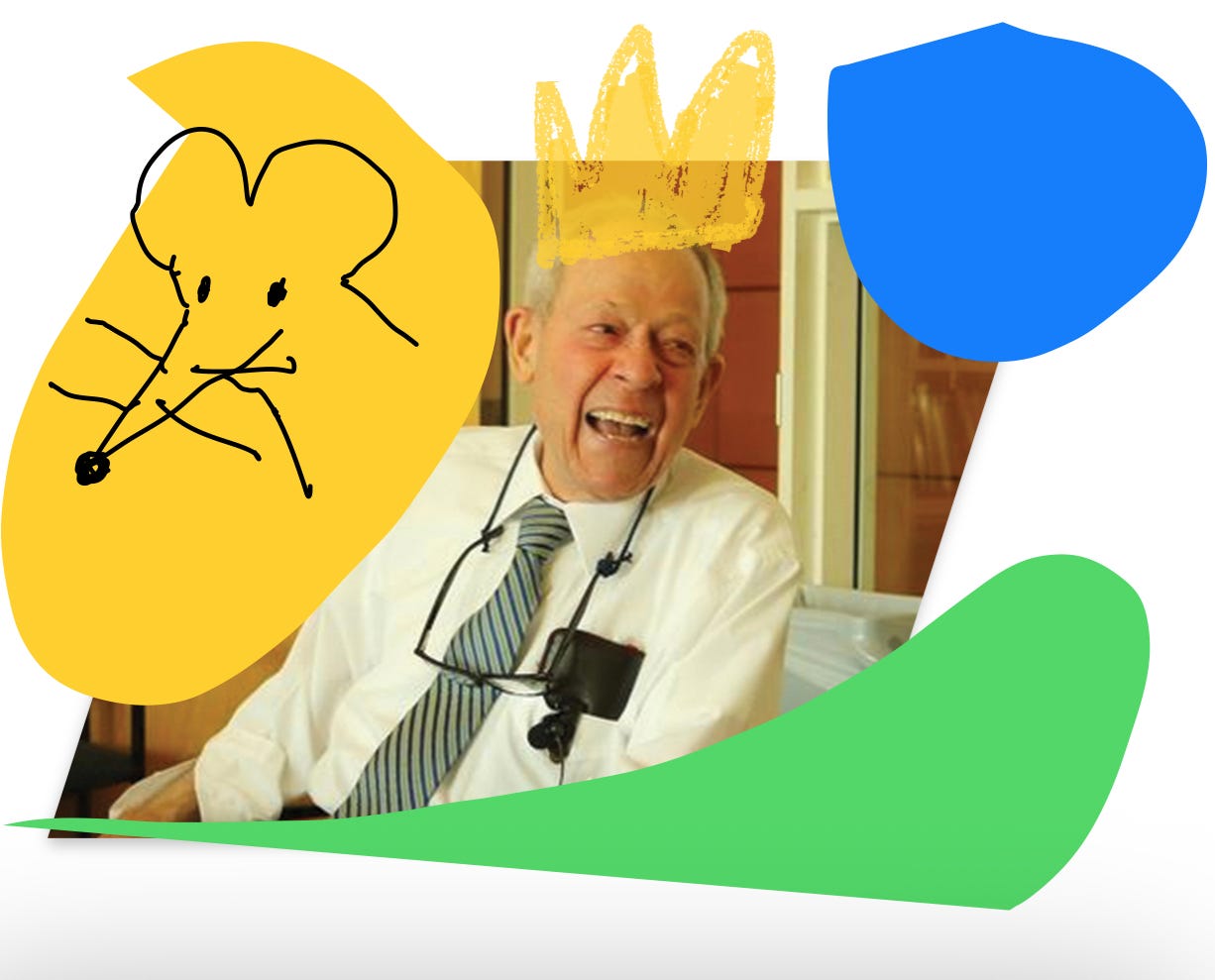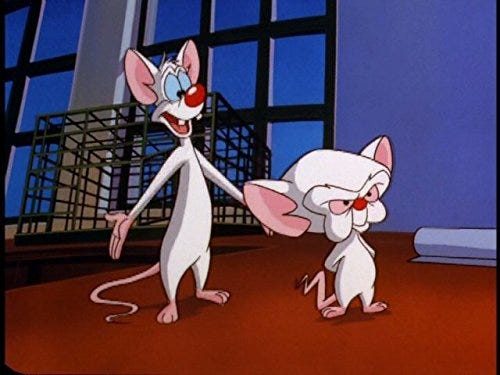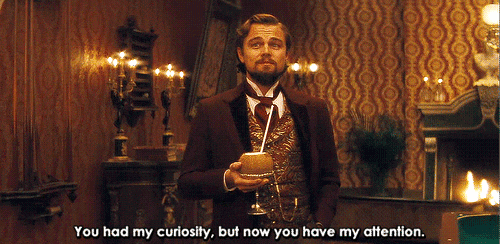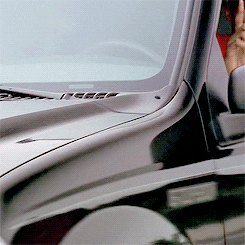Subvert their expectations like a rat
A is for ACCURATE
This is Bob Rosenthal, your next favorite research psychologist gangster.
On a cold winter night. Bob snuck into his lab on a secret mission: to randomly label every rat cage.
The labels were either "maze-bright" or "maze-dull."
Bob came back the next day and told his team:
"For the next week, some of you are going to work with very smart rats or very dumb rats.
Your job is to run your rat through a maze and record how well it does."
What did they find?
The rats labeled "maze-bright" performed much better compared to the "maze-dull" rats. Even though they were originally selected at random.
The experiment demonstrated that the researchers' expectations influenced their treatment of the rats, which, in turn, influenced their performance.
Why am I telling you this?
Because expectations are powerful and inevitable. Stories subverting expectations are satisfying. They produce a little dopamine kick that keeps people engaged.
It's a fine line: too many "unexpectations" (I'm trademarking that one) and your audience will be confused. Too little “unexpectations” (you say it un-esh-pekk-teishens), and they'll get bored.
You don't need a big plot twist, micro-unexpectations go a long way.
I have two examples for you. The right and the wrong.
The Wire: no flashy reveals to forward the story. However, their characters’ outcomes are -for the most part- a couple of blocks away from what you were expecting.
The series ushers you gently into the results rather than dropping from the ceiling screaming kowabunga!
The Last Jedi: SPOILER AHEAD (see?)
I enjoy seeing Star Wars fans melting in puddles of tears over Lightspeed controversies and Death Star backdoor blueprints.
But Kylo Ren killing Snoke doesn't make any goddamn sense. I'll give them that one.
Alright, kiddos. Remember:
Subvert expectations
Eat your greens
Be nice to mice
Love you all.
See you in the next one.
Matias.
Like, sub, share? :)








